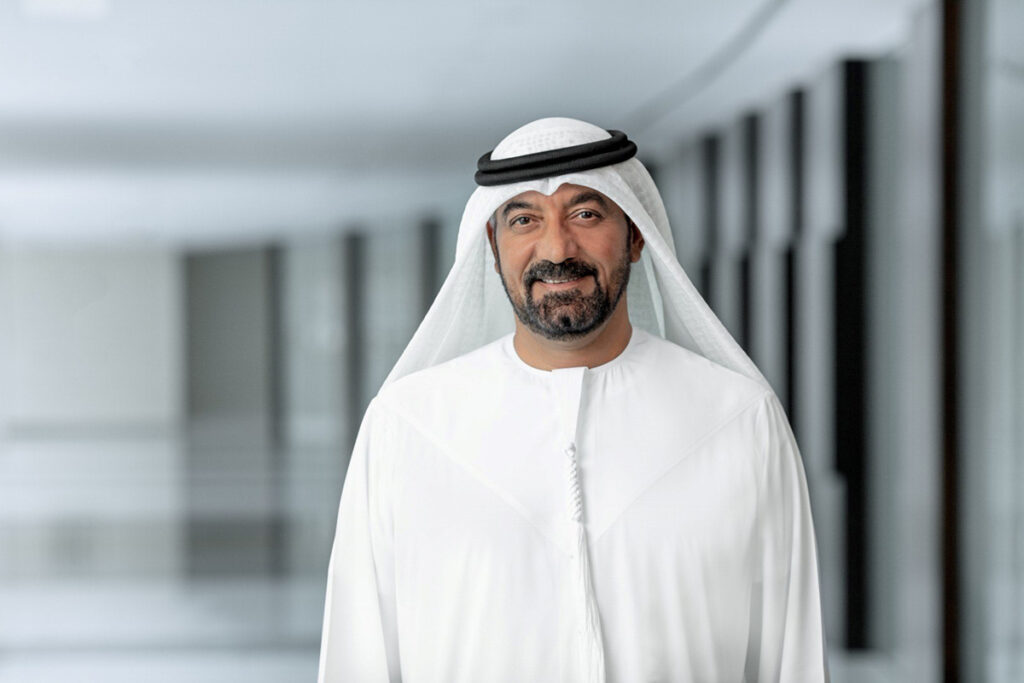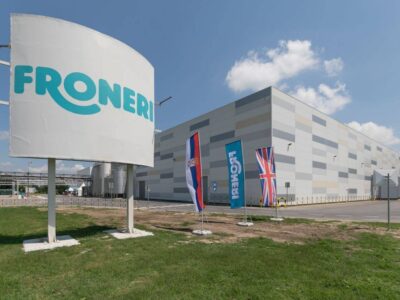The Emirates Group has released its 2024-25 Annual Report, revealing unprecedented financial results that establish it as the most profitable aviation group globally during the reporting period, with Emirates becoming the world’s most profitable airline.
The Group reported a record profit before tax of AED22.7 billion ($6.2 billion), an 18 per cent increase from last year, alongside record revenue of AED145.4 billion ($39.6 billion), up 6 per cent.
“It is no accident that Dubai has produced hugely successful global aviation entities, including Emirates and dnata. Dubai’s aviation sector has become an influential force on the global stage thanks to visionary leaders, strategic planning, co-ordinated execution, and strong support from our customers, business partners, and all the people of Dubai,” Sheikh Ahmed bin Saeed Al Maktoum, Chairman and Chief Executive, Emirates airline and Group said.
“When the government set up Emirates 40 years ago and we began expanding dnata’s capabilities to support the city’s growth, we had a clear mission – be the best at what we do; and deliver value to Dubai, our stakeholders, and the communities we serve. With that in mind, we’ve kept a laser focus on providing great products and services, and we continually invest in technology and talent to increase our competitive edge. We look after our people and our customers, and we work hard to positively impact our communities. We don’t cut corners, and we don’t take shortcuts that put our future at risk for short-term gains. By building our business models around these principles and Dubai’s unique strengths, the Emirates Group has thrived and stayed resilient through geopolitical and socioeconomic challenges over the years,” he added.

Emirates Group achieves record financial performance in 2024-25
Cash assets reached an all-time high of AED53.4 billion ($14.6 billion), up 13 per cent, while EBITDA rose 6 per cent to AED42.2 billion ($11.5 billion), demonstrating strong operating profitability.
Emirates airline posted its best-ever financial performance with a record profit before tax of AED21.2 billion ($5.8 billion), up 20 per cent from last year.
Revenue increased by 6 per cent to AED127.9 billion ($ 34.9 billion), while cash assets grew 16 per cent to AED49.7 billion ($ 13.5 billion).
The Group’s ground handling and travel services division, dnata, delivered solid growth across its business units with profit before tax of AED1.6 billion ($ 430 million), up 2 per cent, and record revenue of AED21.1 billion ($ 5.8 billion), a 10 per cent increase.
This marks the first financial year in which the UAE corporate tax, enacted in 2023, is applied to the Emirates Group at a rate of 9 per cent, resulting in a profit after tax of AED 20.5 billion ($5.6 billion).
The Group has declared a dividend of AED6.0 billion ($1.6 billion) to its owner, the Investment Corporation of Dubai (ICD).
“For 2024-25, the Emirates Group has raised the bar to set new records for profit, revenue, and cash assets. Through the year, Emirates and dnata were able to move quickly to meet the strong demand for air transport services across markets and win over customers – thanks to our non-stop investments in our people, in building partnerships, and in delivering great products and services,” Sheikh Ahmed said.
“I’d like to thank our amazing people at the Emirates Group for achieving another record year, and our customers and partners for their trust and support. My gratitude to Dubai’s visionary leaders HH Sheikh Mohammed bin Rashid Al Maktoum, and his sons HH Sheikh Hamdan and HH Sheikh Maktoum, for their continued leadership and stewardship of Dubai’s strategy, in which the Emirates Group is proud to play a key role,” he added.

In 2024-25, the Group invested AED14.0 billion ($3.8 billion) in new aircraft, facilities, equipment, companies, and technologies to support its growth plans.
The workforce expanded by 9 per cent to 121,223 employees, its largest size ever, to support expanding operations.
Emirates’ total passenger and cargo capacity grew by 4 per cent to 60.0 billion ATKMs, approaching pre-pandemic levels.
During the year, the airline launched services to Bogotá and Madagascar, restarted flights to Phnom Penh, Lagos, Adelaide, and Edinburgh, and strengthened services to 21 other destinations.
By March 31, Emirates was serving 148 cities in 80 countries and territories, with 33 codeshare and 118 interline partners providing access to over 1,750 cities beyond its network.
The first Airbus A350 aircraft joined Emirates’ fleet this year, with four A350s in operation by March 31.
The airline also expanded its retrofit programme to 219 aircraft at a total investment of $5.0 billion.
Emirates’ order book includes 314 aircraft pending delivery, comprising 61 A350s, 205 Boeing 777x, 35 787s, and 13 777Fs.
The airline carried 53.7 million passengers during the year, a 3 per cent increase, with seat capacity up by 4 per cent.
The Passenger Seat Factor was 78.9 per cent, slightly down from 79.9 per cent last year, while passenger yield remained consistent at 36.6 fils (10.0 US cents) per Revenue Passenger Kilometre.

Emirates SkyCargo sees 7% growth in volume, contributes AED16.1 billion to airline revenue
In addition, Emirates SkyCargo delivered an outstanding performance, transporting 2.3 million tonnes of goods, up 7 per cent from the previous year.
The cargo division reported revenue of AED16.1 billion ($4.4 billion), contributing 13 per cent to Emirates’ total revenue, with cargo yield per Freight Tonne Kilometre increasing by 10 per cent.
During the year, Emirates added Copenhagen to its freighter network and signed an MoU with Astral Aviation to expand its reach in Africa.
The airline also launched Emirates Delivers, an e-commerce delivery solution, in Saudi Arabia, and introduced eQuote, a digital self-service platform for customers in 75 countries.
Operating costs increased by 4 per cent, with fuel accounting for 31 per cent of operating costs compared to 34 per cent in 2023-24.
The fuel bill decreased slightly to AED32.6 billion ($8.9 billion) as lower average fuel prices (down 10 per cent), including hedging gains, offset a 5 per cent increase in uplift due to expanded operations.
Dnata’s airport operations handled 794,091 aircraft turns, up 2 per cent, and processed 3.1 million tonnes of cargo, a 9 per cent increase.
The division expanded its international presence by launching operations at Rome Fiumicino Airport after acquiring the remaining 30 per cent stake in Airport Handling, nearly doubling its presence in Italy.
Dnata also won a seven-year renewal of its operating licenses in Zürich and Brussels and added Raleigh-Durham International Airport to its network.
The catering and retail business generated revenue of AED7.1 billion ($1.9 billion), up 10 per cent, while the travel services division grew revenue by 11 per cent to AED3.9 billion ($1.1 billion).
Total transaction value of travel services increased by 9 per cent to AED9.7 billion ($2.6 billion).
On the sustainability front, Emirates continued to seek opportunities to use Sustainable Aviation Fuel (SAF), taking its first deliveries at London Heathrow and Singapore.
The airline also joined Germany’s Aviation Initiative for Renewable Energy and partnered with the Aviation Impact Accelerator at the University of Cambridge for research in emissions reduction.
Emirates launched a large-scale solar energy project at its Engineering Centre in Dubai, joined the Dubai Reef project for marine conservation, and became the first airline to add donkey hides to its wildlife embargo list.
The Group also expanded its fleet of electric and hybrid ground support equipment at airports worldwide.
“We enter the year ahead with excitement and optimism. Our excellent financial standing enables us to continue building on and scaling up from our successful business models. While some markets are jittery about trade and travel restrictions, volatility is not new in our industry. We simply adapt and navigate around these challenges.
“Work is already underway at the new Al Maktoum International airport (DWC) and broader development around Dubai South. Our planning teams are working closely with Dubai airports and other entities to design and deliver the future of aviation and the best possible travel experiences,” Sheikh Ahmed said.
Emirates expects to take delivery of 16 A350s and 4 Boeing 777 freighters in 2025-26, while dnata plans to open new facilities in Amsterdam, Dubai, and Erbil to expand its cargo handling capacity, he added.
“We’ve set high targets for ourselves, but I am confident that our talented workforce and Dubai’s winning formula will empower the Emirates Group to forge an even brighter future, and deliver even more value to the people, cities and communities we serve,” he concluded.





